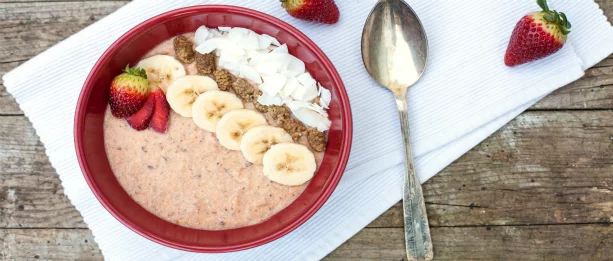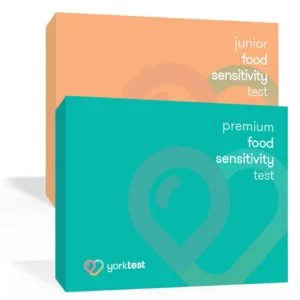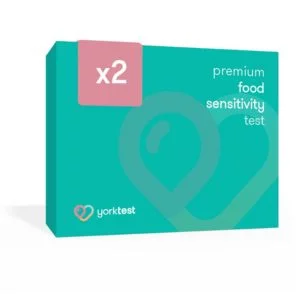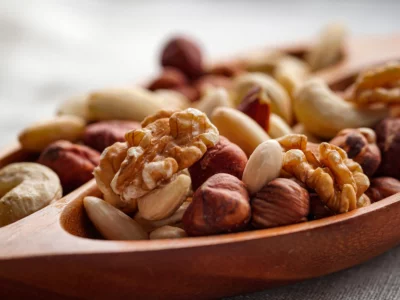We all have those days. You’re not feeling yourself, nothing seems to be going right and you just can’t shake your bad mood. When that happens, many of us turn to food for comfort. While you might usually go for an old favorite or a sugary snack, did you know that some foods contain ingredients that are actually proven to be mood-boosting?
That’s because our brains and our digestive systems work pretty closely together. This connection is why often a stressful situation will lead to stomach problems, or why anxiety gives us that familiar feeling of “butterfliesâ€. Biochemical signals connect your brain and your gut (this is called the gut-brain axis), meaning that food and mood are often closely linked. In fact according to Harvard Medical School, psychosocial conditions (for example stress or depression) can actually influence the movement of your GI tract.
It follows, then, that factors in your gut can also influence your brain. An issue in your GI tract can actually influence and affect your mental health. If you have a food sensitivity, you might find that eating a particular trigger food is a truly miserable experience. If you think you might be reacting to the foods you eat it’s definitely worth speaking to a doctor or taking a food sensitivity test – you never know, cutting out a particular food might help improve the way that you feel.
To try and help promote a healthier gut-brain axis and make your mealtimes a bit happier, we’ve put together a list of some of the best mood-boosting foods to provide a bit of inspiration next time you’re feeling down. Of course, if you’re sensitive to any of these ingredients (or think you might be), steer clear of them and try something else.

Oily fish
There’s lots of evidence that Omega-3 fatty acids can improve brain function. Oily, fatty fish have lots of two kinds of Omega-3s in particular – docosahexaenoic acid and eicosapentaenoic acid – both of which have been linked to decreases in depression symptoms. Omega-3 finds it easy to penetrate cell membranes to work with mood receptors in the brain.
Eating fish like salmon, sardines, mackerel or tuna a few times a week is a great way to boost your mood thanks to fish oil, but there are other ways to get vital Omega-3s for non-pescatarians.
Other foods with high levels of Omega-3 include:
- Flaxseed
- Chia seeds
- Walnuts
- Soybean oil

Whole grains
Starting your day with a good dose of oats and whole grains can be another way to improve your mood. They’re an excellent source of fiber, which ensures the slow release of sugar to maintain your energy levels and stop you getting as tired throughout the day. Keeping your blood sugar levels steady can also help with irritability and controlling mood swings.
Iron deficiencies have also been linked to fatigue, lack of energy, shortness of breath, headaches and pale skin. Oats contain a healthy dose of iron, so it could stop you feeling quite so tired and run down. Whole grains are packed full of B Vitamins too, which can have a positive effect on your mood – B6 converts tryptophan (an amino acid) into serotonin, B1 helps to convert carbohydrates (including glucose) into energy, and vitamin B12 helps produce mood-stabilising neurotransmitters like dopamine.
Some great oat and whole grain options are:
- Oatmeal
- Baked oats
- Brown rice
- Quinoa
- Millet
- Barley
- Bulgur

Probiotics & prebiotics
You probably already know all the varied benefits probiotics and prebiotics can have for your digestive health, but did you know having them in your diet can also help your mental health?
Probiotics are live ‘good’ bacteria that have various health benefits, including bringing healthy microorganisms straight to your digestive system. Prebiotics can be found in some complex carbohydrates and fiber that you can’t digest, and actually feed the healthy bacteria in your gut.
Your gut actually produces lots of neurotransmitters just like your brain – in fact the majority of your serotonin comes from your digestive system. Keeping your digestive tract in good condition can have a positive effect on your mood too. The BMJ has reported that probiotics (on their own, or mixed with prebiotics) can help lessen symptoms of depression.
Foods to try with high levels of probiotics include:
- Yogurt
- Kefir
- Kombucha
- Kimchi
- Buttermilk
Some prebiotic foods to try:
- Bananas
- Garlic
- Legumes and beans
- Berries
- Onions

Nuts and seeds
High in healthy fats, fiber and protein, nuts can be a great pick-me-up. That’s in part thanks to high levels of tryptophan, which helps create serotonin. Some seeds can also contain significant amounts of zinc and selenium, which are important for maintaining brain function.
Almonds – whether it’s a handful in your yogurt or an almond milk latte – are great antioxidants, and contain tyrosine which promotes healthy neurotransmitter production. Regular consumption of nuts has also been linked to decreasing depression, so why not add some to your regular snack rotation if you can? You can incorporate nuts and seeds in lots of ways for a mood boosting food anytime of the day – try them as toppers for salads, yogurt or oatmeal; as coating for meat, fish or protein; or in liquid form as milk.
Chia seeds are full of important nutrients like calcium, fiber and iron, as well as magnesium which is known for its relaxing qualities. Sunflower seeds are a great alternative for nut allergy sufferers, and also contain magnesium, Vitamin B6 and Vitamin E, which has been shown to help with cognition and memory.
Healthy nuts and seeds to consider adding to your diet:
- Almonds
- Walnuts
- Cashews
- Chia seeds
- Sunflower seeds
- Pumpkin seeds

Dark chocolate
We know, sometimes only chocolate will do. While chocolate might not solve all your problems, it certainly can help take your mind off them sometimes.
Having a small portion of dark chocolate (with at least 70% cacao content and ideally 85%+) has been linked to increases in serotonin and dopamine. The sweet(ish) treat helps stimulate the brain’s production of endorphins, and has been shown to improve mood among various other positive side effects.
Chocolate is, of course, a product of the cocoa bean and as such contains plant-based antioxidants called flavonoids, which have anti-viral and anti-inflammatory properties. Dark chocolate is also packed with flavanols, a compound which is also found in fruit like apples and pears, which help increase blood flow to the part of your brain linked with aging.

Clearly, there’s a big link between mood and food. While these foods have properties linked to improving mood and lessening symptoms of depression, you shouldn’t add them to your diet if you suspect you might have a sensitivity or allergy to them.
If you’re not sure whether a reaction to a particular ingredient is impacting your health and your mood, speak to your doctor and consider taking a food sensitivity test, which may help you to positively modify your diet for the better.











